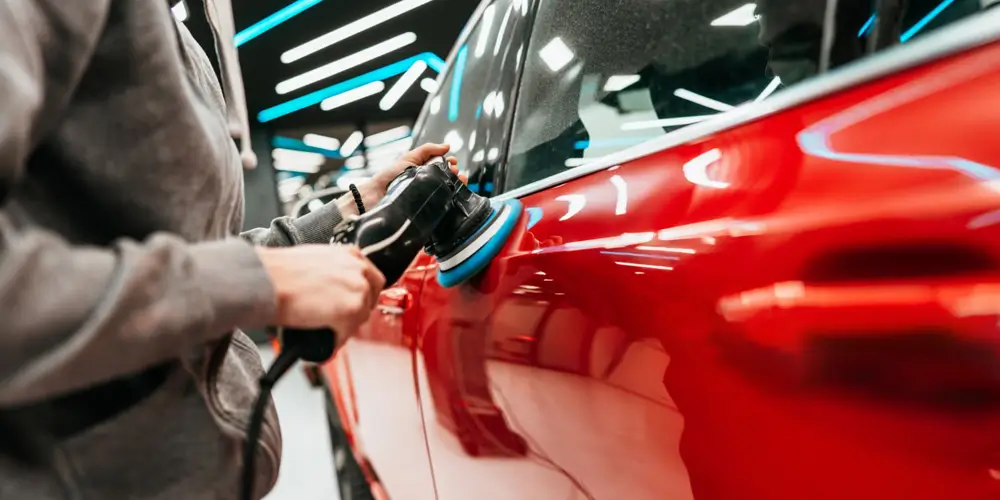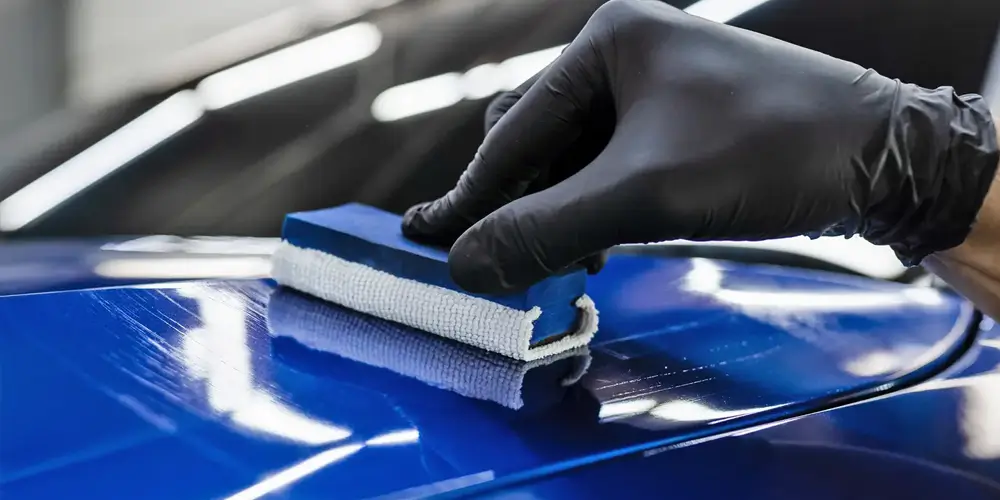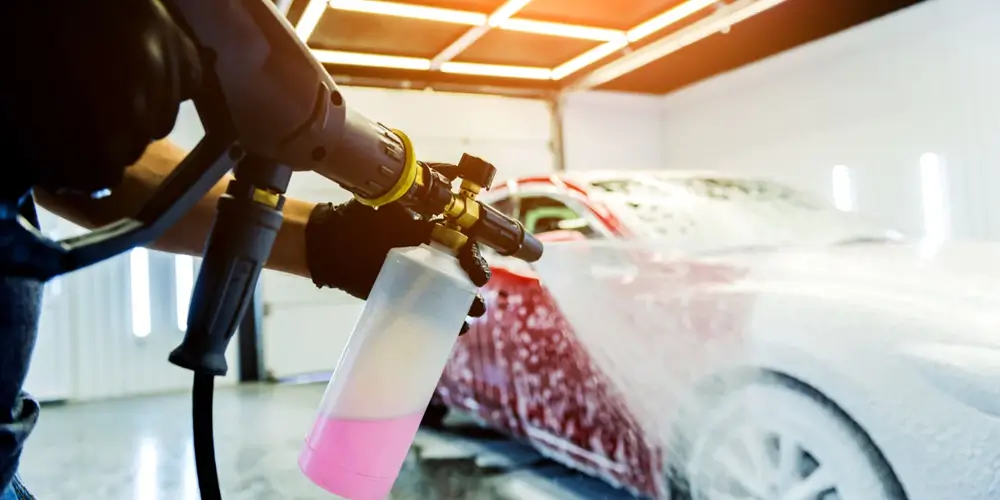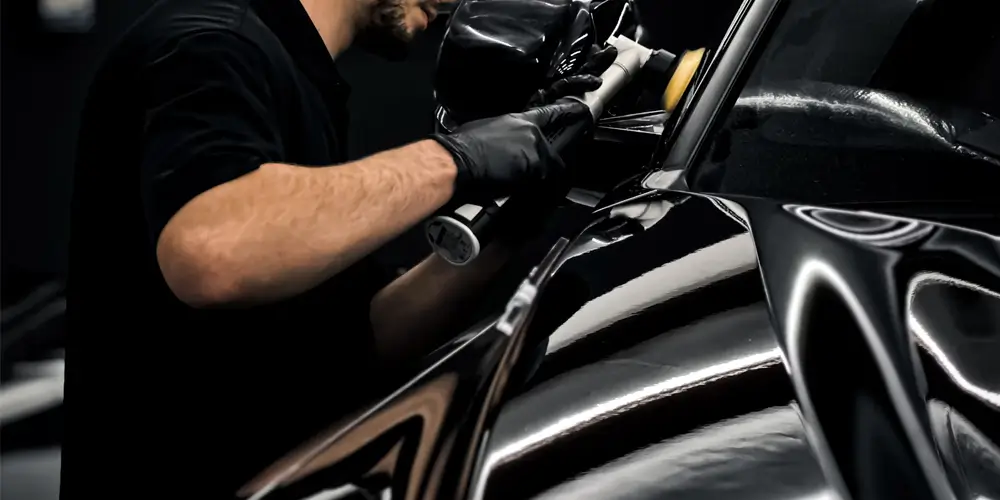What Polishing Compound is Most Abrasive? A Comprehensive Guide by SYBON
In the automotive care industry, achieving a flawless finish on a vehicle’s surface is paramount. Polishing compounds play a critical role in this process, helping to remove imperfections, restore shine, and protect the paintwork. Among the various types of polishing compounds available, abrasiveness is a key factor that determines their effectiveness and suitability for different applications. This article delves into the intricacies of polishing compounds, exploring what makes a compound abrasive, identifying the most abrasive polishing compounds, and understanding their appropriate uses. As SYBON, a leading manufacturer of automotive cleaning and beauty products, we aim to provide comprehensive insights to help automotive professionals and enthusiasts make informed decisions.
Understanding Polishing Compounds
What is a Polishing Compound?
A polishing compound is a substance used to smooth and shine surfaces by removing minor imperfections, such as scratches, oxidation, and swirl marks. In the automotive context, polishing compounds are essential for maintaining the vehicle’s appearance and protecting its paintwork from environmental damage.
Types of Polishing Compounds
Polishing compounds vary in their formulation, abrasiveness, and intended use. The primary categories include:
1. Cutting Compounds: Highly abrasive, used for removing deep scratches and oxidation.
2. Polishing Compounds: Medium abrasiveness, suitable for refining the surface and removing light imperfections.
3. Finishing Compounds: Low abrasiveness, used for final polishing to achieve a high-gloss finish.
Understanding the differences between these compounds is crucial for selecting the right product for specific automotive detailing needs.
What Makes a Polishing Compound Abrasive?
Abrasive Particles
The abrasiveness of a polishing compound is primarily determined by the type, size, and hardness of its abrasive particles. Common abrasive materials include:
1. Aluminum Oxide: Durable and effective for heavy-duty polishing.
2. Silicon Carbide: Extremely hard and sharp, suitable for aggressive cutting.
3. Ceramic Abrasives: Known for their longevity and efficiency.
4. Diamond Abrasives: The hardest known material, used for ultra-fine polishing.
Abrasive Particle Size
Abrasive particles are categorized by their grit size, which indicates the particle size and, consequently, the compound’s abrasiveness:
1. Coarse (20-60 grit): Highly abrasive, used for significant paint correction.
2. Medium (80-150 grit): Moderately abrasive, ideal for removing light scratches and oxidation.
3. Fine (200-400 grit): Minimally abrasive, suitable for final polishing and enhancing gloss.
Bonding Agents
The binder that holds the abrasive particles together also influences the compound’s abrasiveness. Harder binders result in more aggressive cutting action, while softer binders provide gentler polishing.
Identifying the Most Abrasive Polishing Compounds
When seeking the most abrasive polishing compounds, several factors come into play, including the compound’s composition, intended application, and manufacturer’s formulation. Here, we explore some of the most abrasive polishing compounds available in the market:
1. SYBON Perfect Fast Cut Rubbing Compound
SYBON’s Perfect Fast Cut Rubbing Compound is designed for heavy-duty paint correction. It features a high concentration of aluminum oxide abrasives, providing exceptional cutting power to remove deep scratches, oxidation, and severe imperfections. Ideal for professional detailers, this compound delivers consistent results on various paint types.
Key Features:
1. High-grade aluminum oxide abrasives
2. Suitable for extensive paint correction
3. Compatible with rotary and dual-action polishers
2. 3M Perfect-It Cutting Compound
3M is renowned for its high-quality automotive detailing products. The 3M Perfect-It Cutting Compound is among the most abrasive compounds available, offering superior scratch removal and paint restoration capabilities. Its formulation ensures effective cutting while maintaining paint integrity.
Key Features:
1. Proprietary abrasive technology
2. Efficient scratch removal
3. Safe for clear coats and base coats
3. Meguiar’s M105 Mirror Glaze Ultra-Cut Compound
Meguiar’s M105 is a favorite among professional detailers for its aggressive cutting action. This compound effectively eliminates heavy swirl marks, scratches, and oxidation, restoring the paint to a near-mirror finish. Its versatility makes it suitable for various paint conditions and types.
Key Features:
1. High-performance abrasive particles
2. Versatile for multiple paint conditions
3. Easy to apply and work with
4. SONAX Profiline Perfect Finish
SONAX Profiline Perfect Finish is another highly abrasive polishing compound designed for advanced paint correction. Its unique formulation combines robust abrasives with a fast-drying carrier, allowing for efficient removal of deep imperfections without excessive heat buildup.
Key Features:
1. Advanced abrasive formulation
2. Fast-drying carrier
3. Minimizes heat generation during polishing
5. Menzerna Super Heavy Cut Compound
Menzerna’s Super Heavy Cut Compound is engineered for maximum abrasiveness, targeting the removal of significant paint defects. Its ultra-aggressive formula makes it suitable for vehicles with extensive paint damage, ensuring a smooth and flawless finish after application.
Key Features:
1. Ultra-aggressive abrasive formula
2. Effective on severely damaged paint
3. High-quality finish with minimal residue
Factors to Consider When Choosing an Abrasive Polishing Compound
Selecting the most abrasive polishing compound requires careful consideration of several factors to ensure optimal results without damaging the vehicle’s paintwork.
1. Paint Condition
Assessing the current state of the vehicle’s paint is crucial. Vehicles with deep scratches, heavy oxidation, or severe imperfections will benefit from highly abrasive compounds. In contrast, lightly scratched or well-maintained paints may only require medium or fine abrasives.
2. Type of Paint
Different paint types respond uniquely to polishing compounds. For instance, single-stage paints may require less aggressive compounds compared to multi-stage paints. Always consider the paint type when selecting a compound to avoid potential damage.
3. Application Method
The method of application—whether using a rotary polisher, dual-action polisher, or hand application—can influence the choice of compound. Some highly abrasive compounds may generate excessive heat when used with rotary polishers, potentially harming the paint. In such cases, dual-action polishers are recommended for safer application.
4. Abrasive Particle Size and Hardness
As discussed earlier, the size and hardness of abrasive particles significantly impact the compound’s abrasiveness. Coarser grits are more aggressive, while finer grits provide a gentler polish. Selecting the appropriate grit size based on the desired outcome is essential.
5. Compatibility with Other Products
Ensure that the polishing compound is compatible with other detailing products, such as sealants, waxes, and coatings. Some compounds may interfere with the effectiveness of subsequent protective layers if not properly removed.
6. Manufacturer’s Recommendations
Always adhere to the manufacturer’s guidelines regarding the use of their polishing compounds. Following recommended application techniques and safety measures ensures the best results and prolongs the lifespan of both the compound and the paintwork.
SYBON’s Approach to Abrasive Polishing Compounds
At SYBON, we understand the diverse needs of automotive professionals and enthusiasts when it comes to paint correction and detailing. Our range of polishing compounds is meticulously formulated to deliver superior performance, reliability, and safety.
1. Research and Development
SYBON invests heavily in research and development to innovate and improve our polishing compounds. By leveraging advanced materials science and engineering, we create products that offer optimal abrasiveness while preserving the integrity of the vehicle’s paint.
2. Quality Manufacturing
Our state-of-the-art production facilities are equipped with modern production lines and stringent quality control measures. Each batch of polishing compound undergoes rigorous testing to ensure consistency, effectiveness, and adherence to high standards.
3. Diverse Product Range
Understanding that different applications require different levels of abrasiveness, SYBON offers a comprehensive range of polishing compounds tailored to various needs:
- Heavy-Cut Compounds: For deep scratch removal and extensive paint correction.
- Medium-Cut Compounds: Ideal for moderate imperfections and surface refinement.
- Finishing Compounds: Designed for final polishing and enhancing paint gloss.
4. Sustainability and Safety
SYBON is committed to sustainable manufacturing practices and the safety of our products. Our polishing compounds are formulated to be environmentally friendly, minimizing harmful emissions and waste. Additionally, we prioritize user safety by ensuring our products are non-toxic and easy to handle.
5. Customer Support and Collaboration
We believe in building strong relationships with our customers and partners. Whether you are an import wholesaler, an auto beauty shop owner, or the owner of an auto repair center, SYBON is dedicated to supporting your business needs. Our team is always ready to provide technical assistance, training, and customized solutions to help you achieve the best results.
Best Practices for Using Highly Abrasive Polishing Compounds
To maximize the effectiveness of highly abrasive polishing compounds while minimizing the risk of paint damage, follow these best practices:
1. Proper Surface Preparation
Before applying any polishing compound, thoroughly wash and dry the vehicle to remove dirt, grime, and contaminants. Inspect the paint surface to identify areas that require correction and ensure they are free from loose particles that could cause scratches during polishing.
2. Choose the Right Equipment
Use appropriate polishing tools, such as dual-action polishers, which offer a balance between cutting power and safety. High-quality pads compatible with the compound should be selected to facilitate even distribution and effective abrasiveness.
3. Test in an Inconspicuous Area
Before applying the compound to the entire surface, perform a test on a small, hidden area. This allows you to assess the compound’s abrasiveness and ensure it does not adversely affect the paint.
4. Apply in Small Sections
Work on small sections at a time to maintain control and ensure even application. This approach helps prevent over-polishing and heat buildup, which can damage the paint.
5. Use Proper Technique
Apply the compound using steady, overlapping motions. Avoid excessive pressure, which can lead to uneven polishing and potential paint damage. Allow the compound to do the work, rather than forcing it onto the surface.
6. Monitor Heat Generation
Highly abrasive compounds can generate significant heat during polishing. To mitigate this, use low to medium speed settings and take breaks between sections to allow the surface to cool.
7. Inspect Frequently
Regularly inspect the polished area to monitor progress and ensure the desired level of abrasiveness is achieved without overdoing it. Adjust the pressure and speed as needed based on the paint’s response.
8. Follow Up with Protective Layers
After using an abrasive polishing compound, it is essential to apply protective layers, such as sealants, waxes, or ceramic coatings. These layers protect the paint from environmental damage and enhance the longevity of the polish.
The Importance of Choosing the Right Abrasive Compound for Your Business
For businesses in the automotive care industry, selecting the right polishing compound is not just about achieving the best results—it also impacts customer satisfaction, operational efficiency, and brand reputation. Here’s why choosing the right abrasive compound is crucial:
1. Customer Satisfaction
Using high-quality, appropriately abrasive compounds ensures that customers receive top-notch service, resulting in stunning finishes that meet or exceed their expectations. Satisfied customers are more likely to return and recommend your services to others.
2. Operational Efficiency
The right polishing compound can streamline your detailing process. Highly abrasive compounds, when used correctly, can reduce the time needed for paint correction, allowing you to serve more customers efficiently without compromising quality.
3. Protecting Vehicle Paint
Using overly abrasive compounds can damage the vehicle’s paint, leading to costly repairs and diminished customer trust. Selecting compounds with the right level of abrasiveness ensures effective polishing while preserving the integrity of the paintwork.
4. Enhancing Business Reputation
Delivering consistent, high-quality results builds your business’s reputation as a reliable and professional service provider. This reputation is essential for attracting new customers and retaining existing ones in a competitive market.
5. Cost-Effectiveness
Investing in premium, well-formulated polishing compounds may have a higher upfront cost but can be more cost-effective in the long run. These compounds often require smaller quantities per use, have longer shelf lives, and reduce the need for rework due to subpar results.
SYBON: Your Partner in Automotive Care Excellence
SYBON stands at the forefront of the automotive care industry, offering a wide array of polishing compounds designed to meet the diverse needs of professionals and enthusiasts alike. Our commitment to quality, innovation, and customer satisfaction sets us apart as a trusted partner in your detailing endeavors.
Why Choose SYBON?
1. Expertise: With years of industry experience, SYBON has honed its expertise in developing superior automotive care products.
2. Quality Assurance: Our modern production facilities and rigorous testing protocols ensure that every product meets the highest standards of quality and performance.
3. Innovative Solutions: We continuously invest in research and development to bring cutting-edge products that enhance the efficiency and effectiveness of your detailing processes.
4. Comprehensive Support: From technical assistance to customized solutions, SYBON provides comprehensive support to help your business thrive.
Join Our Network of Satisfied Partners
Whether you are an import wholesaler, an auto beauty shop owner, or the owner of an auto repair center, SYBON invites you to collaborate with us. By partnering with SYBON, you gain access to top-tier products, dedicated support, and opportunities for mutual growth.
Get in Touch Today!
If you’re interested in exploring collaboration opportunities with SYBON, please reach out to us through our website’s contact form. Let’s work together to elevate the standards of automotive care and deliver exceptional results to your customers.
Conclusion
Choosing the most abrasive polishing compound is a critical decision that can significantly impact the quality of paint correction and overall customer satisfaction in the automotive care industry. Understanding the factors that contribute to a compound’s abrasiveness—such as abrasive materials, particle size, and bonding agents—enables professionals to select the right product for their specific needs. SYBON, with its extensive industry experience, modern manufacturing capabilities, and commitment to quality, offers a range of highly abrasive polishing compounds tailored to meet diverse applications. By partnering with SYBON, automotive businesses can enhance their service offerings, achieve superior results, and build a reputation for excellence in paint care and detailing.
Source of this article:https://www.sybonbest.com
Get to know us through more channels:




